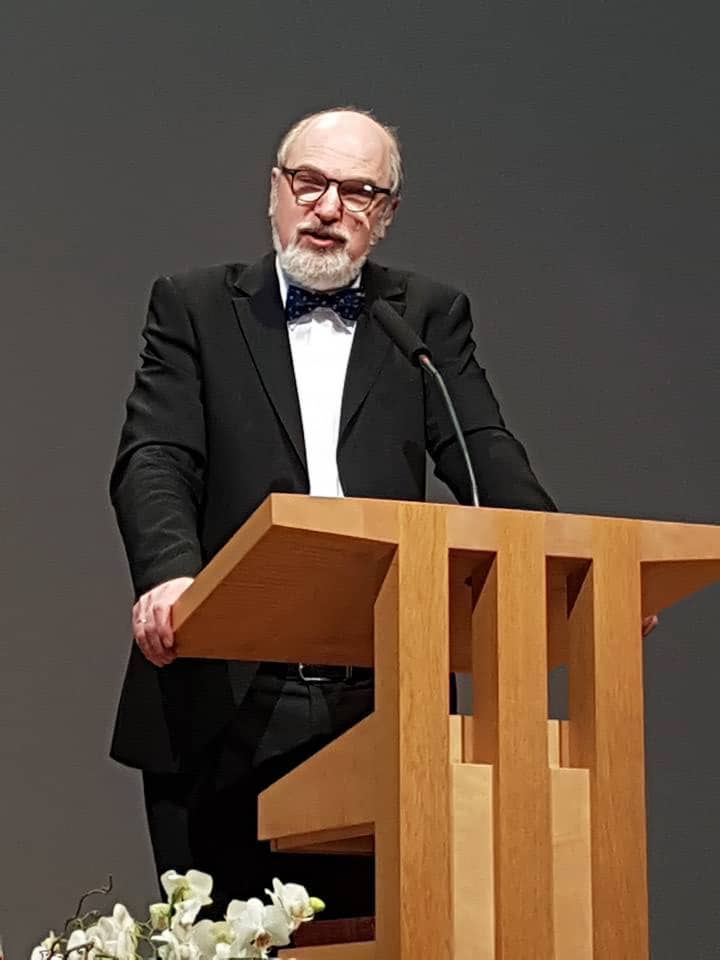NEPAL: HINDUTVA FORCES RALLY AGAINST NEPAL’S REFORMS
—————————————————-
Nepal’s 1990 Constitution describes the country as a Hindu state.
But on 18 May 2006 Nepal’s new parliament declared that Nepal will
no longer be a Hindu Kingdom but will now be a secular state. While
jurists and lawyers raise questions regarding the legal and
constitutional status of the proclamation, ethnic and religious
minorities are rejoicing, believing it should bring an end to all
manner of religious discrimination and persecution.
Asia News reports: “Religious and ethnic minorities in Nepal have
voiced their satisfaction about a historic parliament resolution
declaring the country to be a ‘secular state’.” (Link 1)
Robert Gurung, a member of the “Good Hope” Pentecostal Church, told
Asia News that he regarded the resolution as “revolutionary and
democratic”. Gurung believes the move will “ensure justice among the
different religious, cultural, ethnic and linguistic minorities in
the country.” Gurung continued: “With the advent of the 1990
Constitution, minorities had started breathing some freedom to
profess and live their faith and culture. However, the fact the
country was defined as a Hindu state by the Constitution imposed
particular restrictions on religious minorities, including Christian
ones.”
Pasang Sherpa, secretary-general of the Confederation of Indigenous
and Ethnic Groups of Nepal said, “With this resolution, parliament
is moving towards justice, pluralism and harmony. In a democracy,
minorities cannot be marginalized. Nepal is starting a new chapter
now. We welcome the decision as minorities are exploited in a state
that rules on the basis of a certain religion.” (Links 1 & 2)
Sociologist Dr Krishna Bahadur Bhattachan, told Nepalnews, “All
religious communities – except some Hindus who were misusing state
fund in the name of Hinduism – have hailed the decision, as now
onwards there will be equality among all religions.” (Link 3)
According to Nepalnews, the book “Towards a Democratic Nepal” by
scholar Mahendra Lawoti (published 2005), “argues that the source of
racism and sexism in the (1990) constitution of Nepal is the
declaration of the state as Hindu. Articles 11.2 and 11.3 state that
the Constitution is against discrimination based on religion, yet,
Article 4 explicitly declared Nepal as a Hindu state. ‘The
declaration of the state as Hindu provides sustenance and support to
the discriminating traditions and values and contributes in the
continuation of the social and legal discriminations,’ Lawoti wrote.”
Dr Bhattachan adds that since all major political forces in the
country were in favour of secularism, it should also help bring an
end to the Maoist insurgency. Nepalnews explains that the CPN
(Maoist), comprising mostly dalit and ethnic minorities who suffer
under high-caste Hindu repression, have always advocated for a
secular state.
Dr Bhattachan however, notes there will be a need for firm
implementation: “The declaration should be implemented properly and
there should not be discrimination in the name of religion. If some
people try to protest the decision, people will punish them.”
And it does appear that the transition from Hindu State to secular
democracy will not be smooth or peaceful. The new parliament may
find that by opening the gates to liberty and equality it is also
opening Pandora’s Box. Only a broad-based strong commitment to the
principles of secular democracy, supported by rule of law, will keep
Nepal on track as pressure against the move is already mounting.
After all, as Sushil Shashank, a scholar of tribal culture, noted to
Asia News, the hegemony of the Hindu religion has weighed heavy on
the psyche of the population for more than two decades. “A State
religion means dominion of a culture, of a language and of some
castes…” (Link 1)
While ethnic and religious minorities are rejoicing and hopeful,
those who were the beneficiaries of Hindu dominance and hegemony may
be less welcoming of change.
HINDU RHETORIC RISES
– IN NEPAL
Not long after Nepal’s new House of Representatives (HoR) passed the
resolution to declare Nepal a secular democracy, the Hindu rhetoric
to start to rise – both in Nepal and in neighbouring India.
The Times of India reports: “Nepal parliament’s proclamation
declaring the world’s only Hindu Kingdom as a secular state has
evoked a mixed response with the majority Hindu groups saying the
decision has hurt the community. ‘The decision of the so-called
Parliament has hurt the faith of the 900 million Hindu populace
across the globe and brought about possibilities of a religious
crusade in Nepal,’ Shiv Sena Nepal President Arun Subedi said.”
Arjun Lamichhane of the Bishwo Hindu Youth Federation also expressed
his hostility to the resolution. (Link 2)
Nepalnews reports: “In a bid to appease minorities, the seven party
alliance is likely to end up offending the Hindu majority. … the
proclamation of the HoR to declare Nepal a secular country is likely
to ruffle many feathers over the long period of time.” (Link 3)
Furious Hindu leaders are accusing the Seven Party Alliance of
betraying the country and acting illegally. Nepalnews reports,
“Bharat Keshar Simha, chairman of World Hindu Federation (WHF) [and
close aide of King Gyanendra], said that the decision was illegal
and a conspiracy against the country. ‘If political parties are
convinced that the state should be declared secular, they should
have courage to go for a referendum and get people’s mandate rather
than making a proclamation in an illegal way,’ he added.
“Simha further said that WHF would organize various protest
programmes against the decision and would also take to the street to
protest what he called the ‘unconstitutional declaration’ of the
House of Representatives.”
Chintamani Yogi, Principal of Hindu Vidyapeeth—Nepal (HVP-N)
cautioned Nepalnews that the parliament’s decision to declare Nepal
as a secular state could provide the motivation for regressive
forces to unite under the banner of Hinduism and politicised religion.
“Yogi further cautioned that Missionary activities could flare up in
the days to come in the aftermath of Nepal being declared a secular
state and age-old harmony among various religious groups within the
country could be endangered.” (Link 3)
Swami Dhruba – Kathmandu-based Hindu preacher told Nepalnews that
“various Hindu groups were currently holding meetings and were in
direct touch with Hindu religious leaders of India to chart out
future strategies. ‘We will not remain silent and [will] continue to
expose the policy of appeasement,’ he warned.” (Link 3)
– IN INDIA
Disapproval of the resolution is also coming from the Sangh Parivar
(body of Hindu nationalists) in India. Hindustan Times reported on
19 May that in India the BJP was reacting strongly against the
resolution of Nepal’s new HoR. “Thousands of activists, belonging to
the BJP and its allies, took out a march in Sonauli, Thoothibari of
Maharajganj district to express their anger at the decision of
Parliament. National president of the World Hindu Federation (India
Wing) and BJP MP Yogi Adityanath led the march.
“Adityanath directed the party activists to launch a movement
against the decision of the Nepalese Parliament. The procession
pa
ssed through various routes and raised slogans against the
Nepalese Government. The Hindu Yuva Vahini, the Hindu Mahasabha and
other organisations supported the march.
“Strongly condemning the decision of the Nepalese Parliament
Adityanath said that it was a deep-rooted conspiracy of
international force. Adityanath said that whenever Nepal would be
secular state, the security of India would come under threat…” (Link 4)
Former BJP leader, Bharatiya Janshakti, expressed the same
sentiments, claiming that the resolution to turn Nepal into a
secular state would encourage Hindu fundamentalists to increase
their stronghold there, creating security and stability concerns in
Nepal and for India. (Link 5)
The RSS and VHP both have huge stakes in Nepal with affiliates such
as the Hindu Swayamsewak Sangh and so are maintaining a stoic
silence in order to placate Nepalese authorities and protect their
interests. The RSS has however, asked the Hindus of Nepal to
maintain eternal vigilance to protect their religious identity. RSS
General Secretary Mohan Bhagwat said in the Sangh first comments on
the proclamation, “The constitutional recognition of Nepal as a
Hindu nation was symbolic of its ancient traditions and culture.
This identity was so far safe under the Constitution. But now the
people of Nepal will have to maintain eternal vigilance to safeguard
it.” (Link 6)
PROTESTORS HIT THE STREETS
On Monday 22 May some 5000 Hindus took to the streets in Nepal’s
southern town of Birgunj, about 150 km (90 miles) south of
Kathmandu, to denounce the parliament’s resolution to turn Nepal
into a secular state. The rallies were organised by activists from
the World Hindu Federation (WHF) and Shiv Sena Nepal. The protestors
blocked the Tribhuvan highway on the Bara-Parsa industrial belt near
the Indian border. Shouting “Jay Shree Ram!” (Lord Ram is great!),
they burnt tyres, logs, and newspapers that supported the
resolution. They forced shops to close and vehicles off the street.
Observers are concerned that protests could turn violent, especially
if incited by Hindutva forces. In fact, in what has tones of a
threat, the WHF has warned that the protests could lead to riots.
Likewise, Chintamani Yogi, principal of Hindu Vidyapeeth, has warned
that the harmonious co-existence of several religions in Nepal could
be in danger. (Link 7)
Elizabeth Kendal
[email protected]
Links
1) Nepal is secular state: minorities happy
by Prakash Dubey. 22 May, 2006 NEPAL
http://www.asianews.it/view.php?l=en&art=6227
2) Hindus criticise Nepal’s secular status. 20 May 2006
http://timesofindia.indiatimes.com/articleshow/1539923.cms
3) ‘Secular Nepal’ finds itself in the eye of controversy
By Pratibedan Baidya. 24 May 2006
http://www.nepalnews.com/archive/2006/others/feature/may/news_feature07.php
4) BJP, allies protest Nepal decision
Hindustan Times. 19 May 2006. HT Correspondent, Gorakhpur.
http://peacejournalism.com/ReadArticle.asp?ArticleID=8846
5) Secular Nepal no good for India: Uma
http://www.chennaionline.com
6) Secular Nepal: RSS avoids direct criticism
NEW DELHI, 20 MAY 2006 (PTI)
http://www.outlookindia.com/pti_news.asp?id=386352
7) Hindu ultras shut down Nepal’s industry hub. 24 May 2006
http://www.newkerala.com/news2.php?action=fullnews&id=64529
ALSO
Nepalis protest over secular moves. Reuters. 24 May 2006
http://www.alertnet.org/thenews/newsdesk/B315115.htm
—————————————–
**WEA Religious Liberty News & Analysis**
<[email protected]>
—————————————–
Please feel free to pass this along to others giving attribution to:
“World Evangelical Alliance – Religious Liberty News & Analysis.”
To subscribe for Religious Liberty News & Analysis, please send
your request to Elizabeth Kendal <[email protected]>.
Please include your name and country or state of residence.
For more information on the World Evangelical Alliance, please see:
<http://www.WorldEvangelicalAlliance.com>,
For the Religious Liberty Commission of the WEA, see:
<http://www.WorldEvangelicalAlliance.com/commissions/rlc.htm>.
All WEA RLC material is archived at <http://www.ea.org.au/rlc>.
PRAYER: For those of you who would like more detailed information on
situations for prayer and intercession, we recommend that you
subscribe to the WEA Religious Liberty Prayer List. Each week a
different nation or situation is highlighted. To subscribe, send an
empty e-mail to <[email protected]> with any or no subject.
Advocates International <http://www.advocatesinternational.org>
serves as the legal and judicial advisor to the RLC. Advocates
International links many Christian lawyers and judges around the
world and has been involved in religious liberty issues for many
years.
The Religious Liberty News & Analysis mailing list provides reports
on the state of religious liberty and persecution around the world
with those with a special interest in the field. Most members are
involved in church-based religious liberty advocacy, academic
research, missions leadership, creative-access missions, religious
media, or have prayer networks supporting these groups, although
anyone is welcome to join. Postings average one or two per
week. Information shared does not necessarily reflect the opinion
of World Evangelical Alliance, or of the WEA Religious Liberty
Commission.





Stay Connected